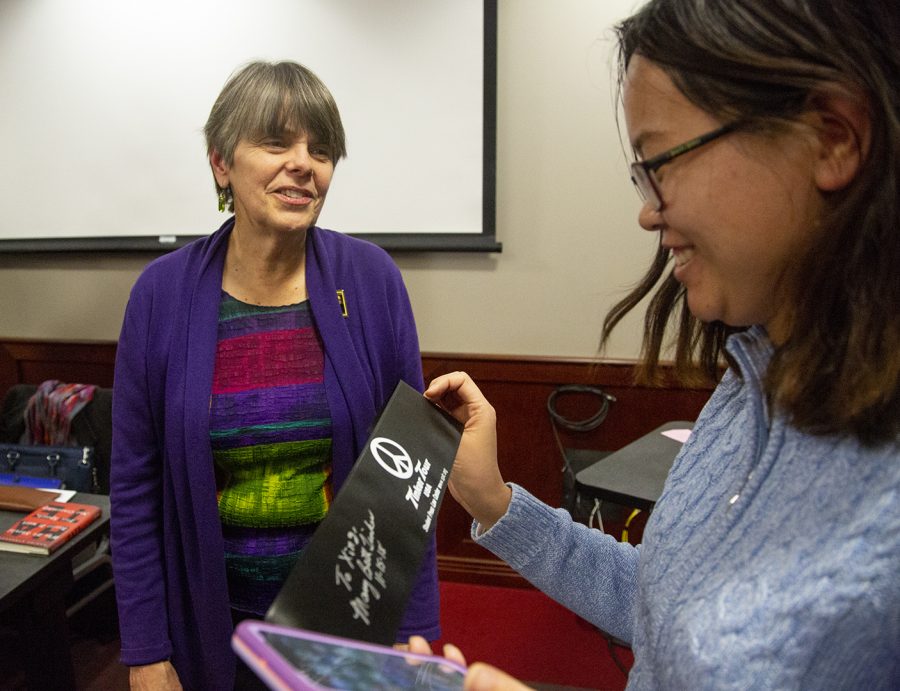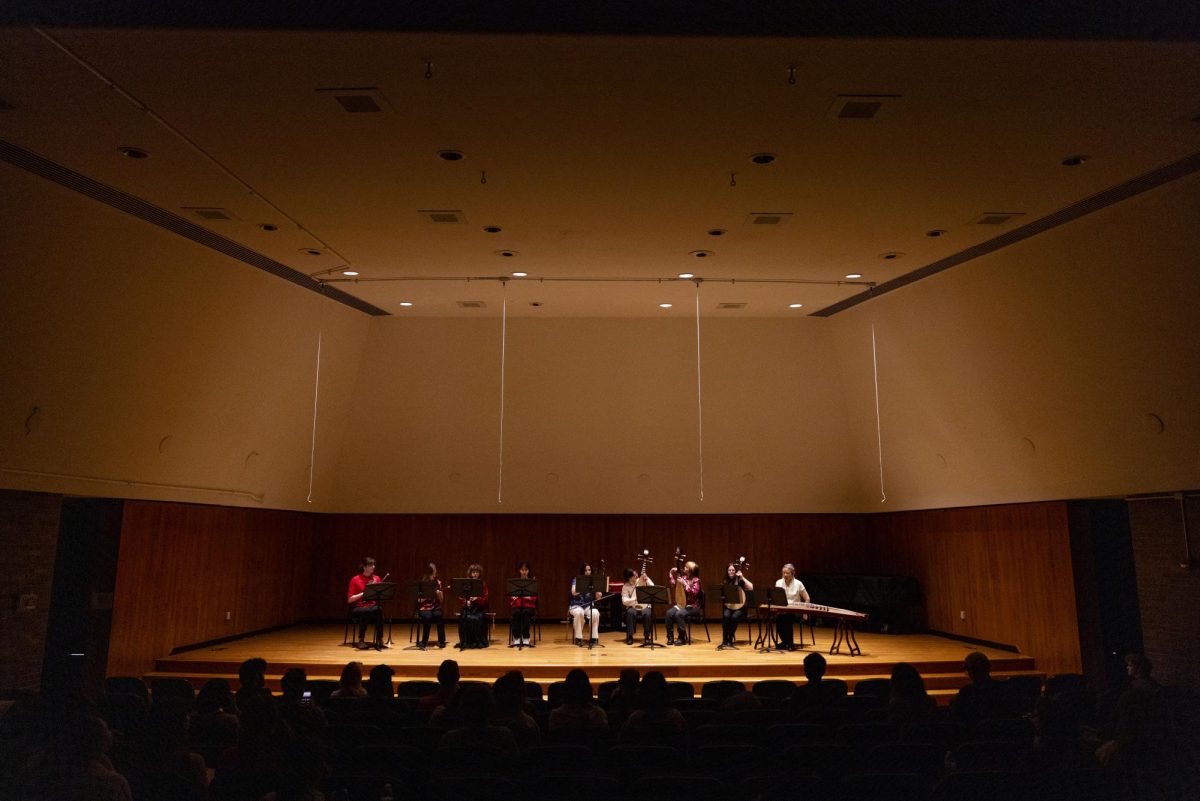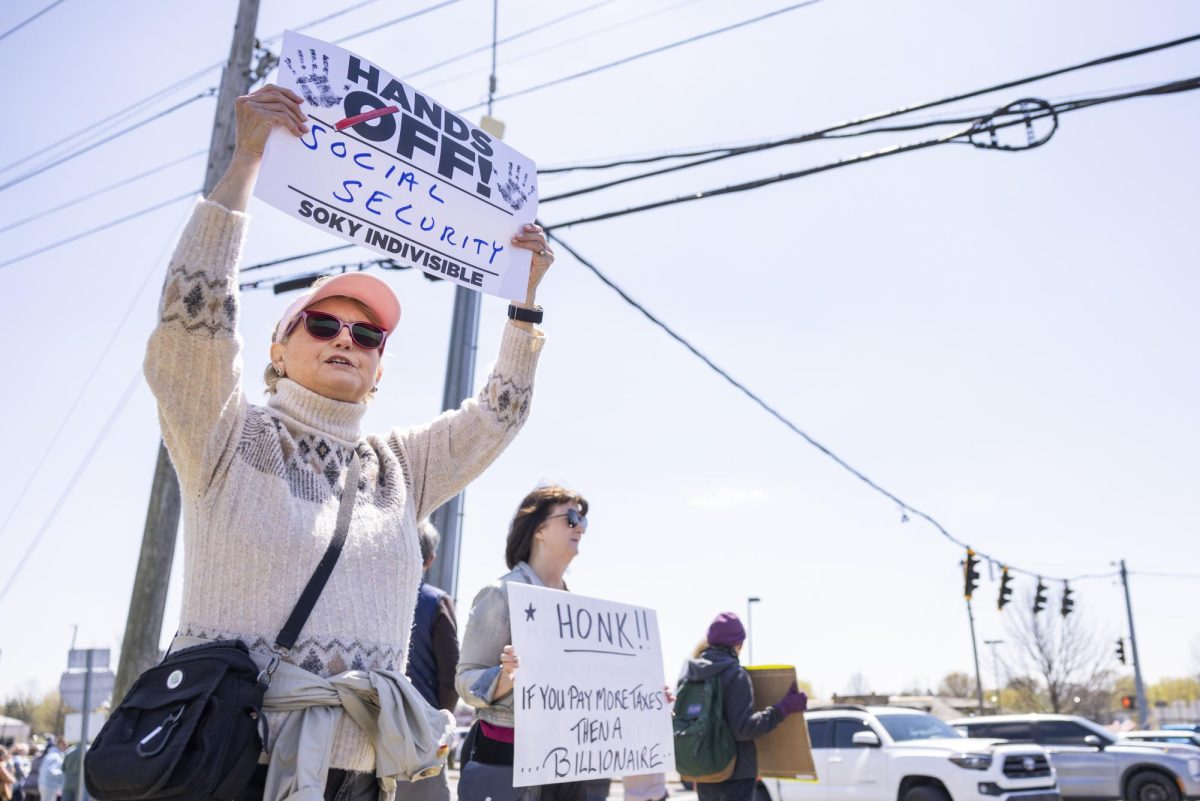Mary Beth Tinker discusses First Amendment rights
November 16, 2018
In December of 1965, thirteen year-old Mary Beth Tinker and her siblings and friends, clad in black armbands, walked through the doors of Warren Harding Junior High School in Des Moines, Iowa, and into the pages of history.
Tinker’s black armband was an effort to show solidarity with the casualties of the Vietnam War and resulted in one of the highest profile students’ rights cases to come before the Supreme Court, which became known as Tinker v. Des Moines. The Court ruled 7-2 that students could display political messages on school grounds.
This resulted in Tinker’s suspension from school for breaking a rule that prohibited wearing armbands on school grounds.
In the decades since the landmark case, Tinker has done speeches all over the country advocating for free speech in schools and college campuses. Thursday, she made a stop at WKU.
Tinker began her talk by speaking directly to the students in the audience. She said students and young people can solve problems better than adults because of their new perspectives.
“You don’t choose when you’re born, but you get to decide how you respond to the surroundings you’re born into,” Tinker said. “You’ve always heard ‘oh, that’s the way it has always been,’ don’t accept that. You have fresher eyes. You can change things.”
Tinker’s speech was billed as “Youth and the First Amendment.” Tinker presented the story of her Supreme Court case, and provided a historical context for the case itself.
Tinker’s case came as discussions over civil rights became more prevalent, with Tinker herself witnessing the Children’s Crusade march in Birmingham, Alabama, in 1963.
“They did something all kids do; they saw that something was wrong and tried to change it,” Tinker said about the march.
Tinker said they wore the armbands to mourn soldiers on both sides of the Vietnam war, and were called Communists for it. During the suspension process, she said the School Board voted 5-4 to suspend the five other students with armbands. However the paper, the Des Moines Register was on their side.
“I think that the most important thing for students to remember is to stand up for your rights,” Tinker said, ‘Your rights are like muscles; if you don’t use them they go away.”
Tinker was introduced by journalism professor Rich Shumate who said the biggest point students should take away is that they need to get involved.
“When you see things you are upset about, you need to speak up,” Shumate said.
“I thought it was really empowering,” freshman Rikkie Clark said. “You see what they went through back then and what we’re going through now, and it makes you want to do more.”
Reporter Jack Dobbs can be reached at 270-745-0655 and jack.dobbs469@topper.wku.edu.
















